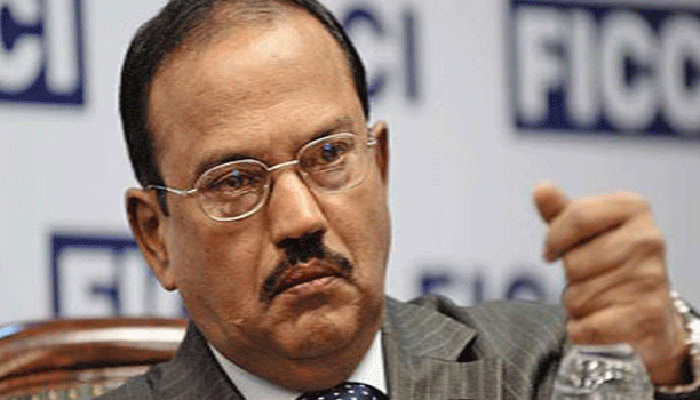Article 35A of the Constitution of India which gives right to the state of Jammu and Kashmir to define ‘permanent residents’ of the state and provides special rights and privileges to them has been hotly debated for many years. The issue is currently being heard by the Supreme Court as well where a petition challenging the validity of Article 35A has been adjourned till January. National Security Advisor (NSA) Ajit Doval had recently created quite a stir by his comments that a separate constitution for the state is an ‘aberration’ as Article 35A leads to a ‘diluted and ill-defined’ sovereignty. Ajit Doval was speaking at the launch of a book on Sardar Vallabhbhai Patel at Vivekananda International Foundation (VIF), where he expressed his take on Article 35A which was quoted by PTI as, “The thing was that, to make a sovereign state in which there was the sovereignty of the people, was established in the Constitution, which is applicable to the whole of it. Probably with Jammu and Kashmir, where the Constitution was… in a truncated form… another constitution of J&K continued to exist, which is an aberration.”
Ajit Doval went on to elucidate that the accession documents which were signed by Maharaja Hari Singh were “means to an end”, and then defended his statements when he said, “560 states which had different laws were merged with India and had one constitution. Merger was means to an end and not an end by itself.” Doval’s comments have created quite the stir in the political circles of Jammu and Kashmir, his statements though they appear seemingly a bit harsh but they are nonetheless important and need to be implemented immediately to solidify India from the inside. The separate constitution for Jammu and Kashmir is a folly whose implications we feel till date which was surprisingly imposed on by none other than the first Prime Minister of India, Pt. Jawaharlal Nehru. Nehru had been persuaded by Lord Mountbatten to take the Jammu and Kashmir issue to United Nations, Article 370 of the Indian Constitution is the article which provides autonomous status to the state of Jammu and Kashmir. The creation of J&K Constituent Assembly led to the creation of the state’s constitution and dissolved itself meaning Article 370 became a permanent feature of the Indian Constitution.
Article 35A of the Constitution of India was added by the President of India on 14 May 1954 by exercising the powers contained in the clause (1) of Article 370. Nehru therefore can directly be held responsible for the passing of the Presidential order which continues to create problems for India till date. The Article not only challenges the sovereignty of India directly but also creates a situation where it becomes impossible for an ordinary Indian citizen to live and engage in business as per his/her wish. It also provides a benefit to the residents of the state wherein they could easily enjoy the benefits of Indian nationality but stops others from enjoying the same on Kashmiri soil. The state governments in power get an unfair right to discriminate between citizens of India and give preferential treatment to others in matters such as buying properties, getting jobs etc.. The separate constitution helps Pakistan to push forward its secessionist agenda and has become a political tool especially in the Kashmir valley. Pakistan uses it as per its wish to engage and mould the people every time a voice against it is raised. The timing is just right for some decisive action to take place, President’s rule is in place in the state and the centre has an opportunity to go ahead with its resolve. Ajit Doval’s comments about the separate status for Jammu and Kashmir have come at the right time and should be taken as a voice asking for resolution of the Kashmir issue.
